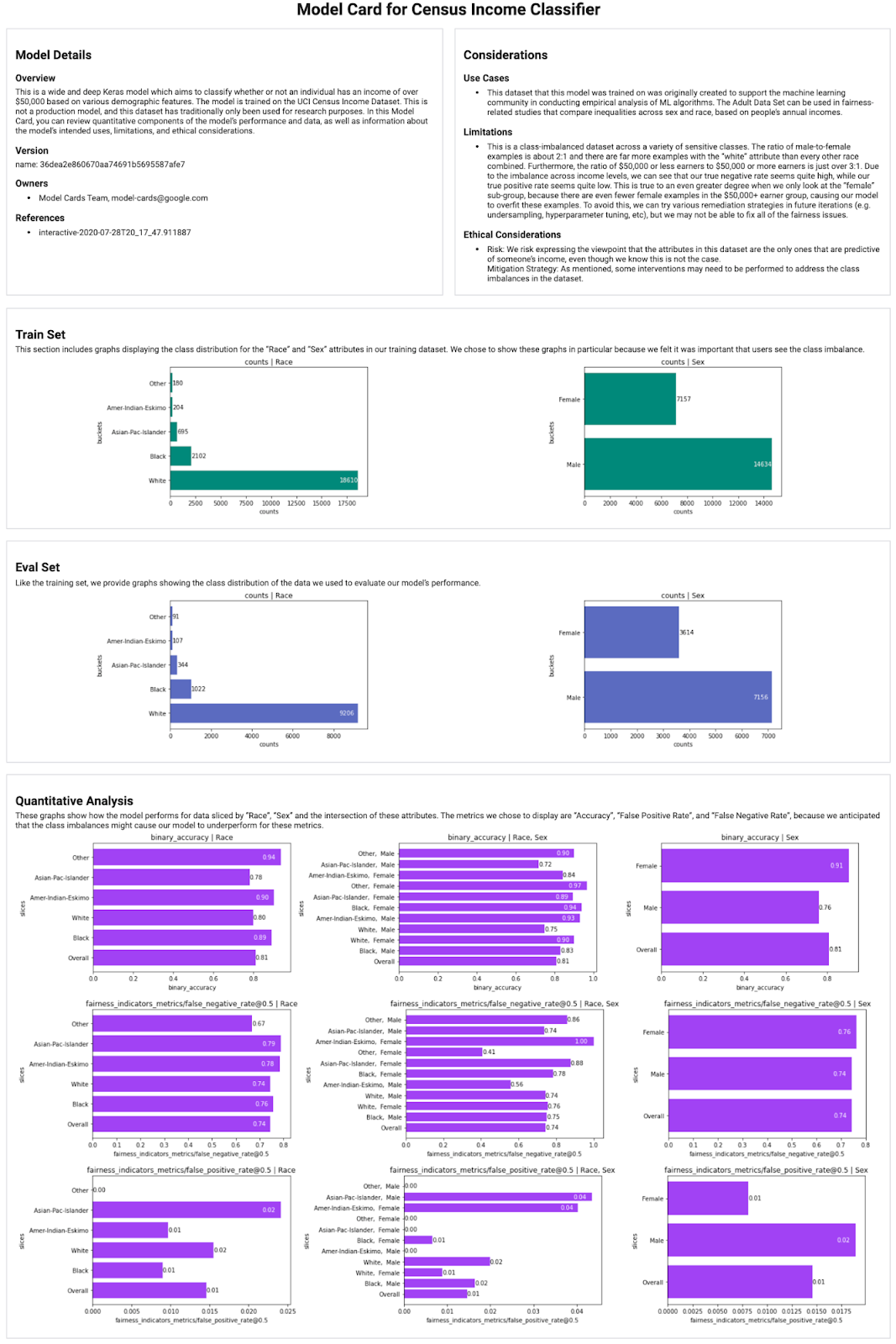The Model Card Toolkit (MCT) streamlines and automates generation of Model Cards [1], machine learning documents that provide context and transparency into a model's development and performance. Integrating the MCT into your ML pipeline enables the sharing model metadata and metrics with researchers, developers, reporters, and more.
Some use cases of model cards include:
- Facilitating the exchange of information between model builders and product developers.
- Informing users of ML models to make better-informed decisions about how to use them (or how not to use them).
- Providing model information required for effective public oversight and accountability.
The Model Card Toolkit is hosted on PyPI, and can be installed with pip install model-card-toolkit (or pip install model-card-toolkit --use-deprecated=legacy-resolver for versions of pip starting with 20.3). See the installation guide for more details.
import model_card_toolkit
# Initialize the Model Card Toolkit with a path to store generate assets
model_card_output_path = ...
mct = model_card_toolkit.ModelCardToolkit(model_card_output_path)
# Initialize the model_card_toolkit.ModelCard, which can be freely populated
model_card = mct.scaffold_assets()
model_card.model_details.name = 'My Model'
# Write the model card data to a proto file
mct.update_model_card(model_card)
# Return the model card document as an HTML page
html = mct.export_format()
If you are using TensorFlow Extended (TFX), you can incorporate model card generation into your TFX pipeline via the ModelCardGenerator component. See our guide for more details, this case study for a demonstration.
Model cards are stored in proto as an intermediate format. You can see the model card JSON schema in the schema directory.
